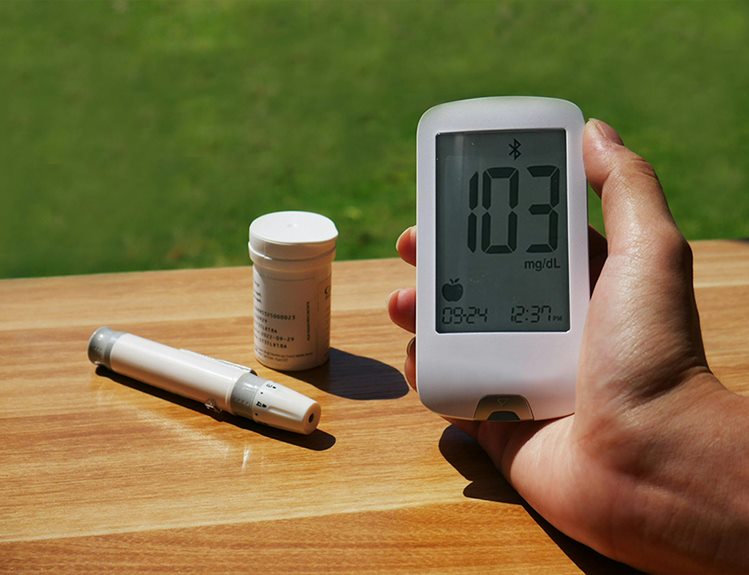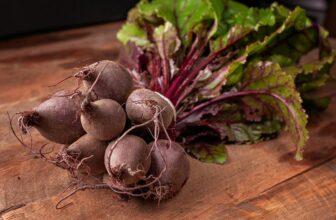
You might be wondering if beetroot can really help manage your blood pressure naturally. With its high nitrate content, beetroot has gained attention for its ability to convert into nitric oxide, which helps relax blood vessels. Some clinical studies suggest that incorporating beetroot juice into your routine can lead to noticeable reductions in blood pressure, especially for those dealing with hypertension. But what does this mean for your daily diet, and how can you effectively include beetroot to maximize its benefits? Let's explore the evidence and practical tips that could make a difference.
Understanding Blood Pressure
Blood pressure is a crucial indicator of your heart health, reflecting how hard your heart works to pump blood throughout your body. It's measured in millimeters of mercury (mmHg) and consists of two numbers: systolic and diastolic. The systolic pressure occurs when your heart beats, while the diastolic pressure occurs when it's at rest. A normal reading is usually around 120/80 mmHg.
When your blood pressure rises, it can put added strain on your heart and arteries, increasing the risk of heart disease, stroke, and other serious health issues. Factors contributing to high blood pressure include stress, poor diet, lack of exercise, and genetics.
Understanding how your lifestyle choices affect your blood pressure is essential. Monitoring your levels regularly can help you stay aware and take action if they start to rise.
If you notice consistent readings above the normal range, it's crucial to consult with a healthcare professional. They can provide guidance and potential treatment options tailored to your situation.
Nutritional Profile of Beetroot
Beetroot is a vibrant vegetable packed with essential nutrients that can benefit your overall health. It's low in calories but rich in dietary fiber, making it great for digestion.
You'll find a variety of vitamins and minerals in beetroot, including vitamin C, which boosts your immune system, and several B vitamins that support energy production.
One of the standout features of beetroot is its high levels of folate, crucial for DNA synthesis and cell function. Additionally, it contains potassium, which helps manage fluid balance and supports heart health.
Beetroot is also a good source of manganese and iron, both important for metabolic processes and oxygen transport in the body.
Another notable component is betalains, which are powerful antioxidants that may help reduce inflammation. The vibrant red color of beetroot signifies the presence of these beneficial compounds.
When you incorporate beetroot into your diet, whether raw, cooked, or juiced, you're not just enjoying a tasty vegetable; you're also providing your body with a wealth of nutrients that can contribute to your overall well-being.
Research on Beetroot and Blood Pressure
Numerous studies highlight the connection between dietary beetroot and blood pressure regulation. Research indicates that beetroot is rich in nitrates, which your body converts into nitric oxide. This compound helps relax and dilate blood vessels, ultimately leading to lower blood pressure.
In clinical trials, participants consuming beetroot juice showed significant reductions in systolic and diastolic blood pressure within hours of ingestion. One notable study found that just 250 mL of beetroot juice could decrease blood pressure by an average of 4-5 mmHg. This effect seems particularly pronounced in those with hypertension.
The benefits don't end there; regular consumption appears to have lasting effects, with some studies showing that consistent intake can maintain lower blood pressure levels over time. Additionally, beetroot's antioxidant properties may contribute to cardiovascular health, further enhancing its blood pressure-lowering effects.
While more research is needed to fully understand the mechanisms at play, current evidence supports incorporating beetroot into your diet for its potential benefits. By adding this vibrant vegetable to your meals, you might help manage your blood pressure naturally and improve your overall heart health.
Incorporating Beetroot Into Your Diet
Incorporating beetroot into your diet can be a simple yet effective way to harness its blood pressure-lowering benefits. You can start by adding fresh beetroot to your salads. Grate or slice it thinly, and mix it with greens, nuts, and a light dressing for a refreshing meal.
If you prefer a drink, consider beetroot juice. You can blend raw beetroot with other fruits like apples or oranges for a tasty smoothie. Drinking a glass daily may help improve your blood pressure over time.
Another option is to roast beetroot. Toss it with olive oil, salt, and pepper, then roast it in the oven until tender. This side dish pairs well with meats or can be enjoyed on its own.
For a quick snack, try beetroot chips. Slice beetroot thinly, season with your favorite spices, and bake until crispy. They're a healthy alternative to regular chips.
Lastly, don't forget about beetroot powder, which you can easily add to oatmeal or yogurt. By creatively incorporating beetroot into your meals, you can enjoy its health benefits while enhancing your diet.




